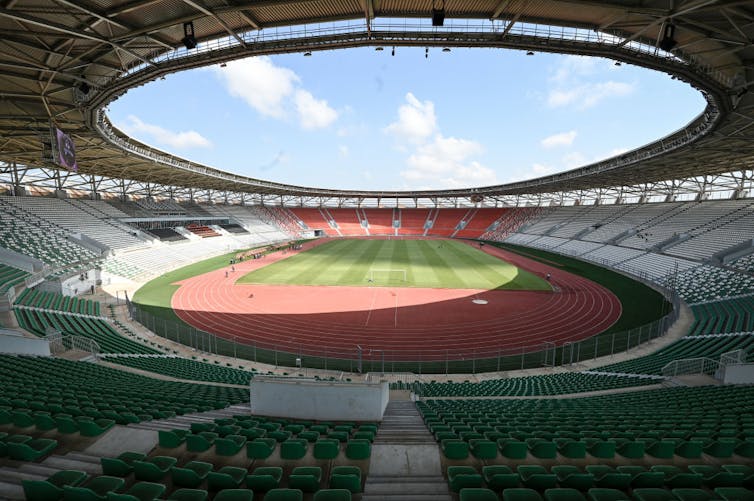
In a recent interaction with Bloomberg, the finance minister, Mr. Ken Ofori Atta, disclosed that government intends to issue up to $2 billion in green and social bonds by November to finish off its direct borrowing from the international capital markets for this year as indicated in the budget.
The impact of the coronavirus disease (COVID-19) pandemic has focused attention on the need for sustainable economic recoveries across the world. Green, sustainability, and social bonds (GSS) were already gaining traction before COVID-19 but they are now an even more important financial instruments for countries in catalyzing funds for green and sustainable recovery programs and projects. They form part of the broader umbrella of the ESG (Environmental, Social, Governance) investing theme and framework.
What are Green, Social and Sustainability (GSS) Bonds?
According to the International Capital Markets Association (ICMA), Green, Social and Sustainability (also called Sustainable or GSS) bonds are a means of raising finance for projects with environmental and/or social benefits.
Green bonds are issued to fund projects that have positive environmental outcomes or contribute to climate change reduction.
Social bonds raise funds for new and existing projects with positive social outcomes and are generally classified as use-of-proceeds bonds. Social project categories include affordable basic infrastructure, access to essential services, affordable housing, employment generation, food security, and socioeconomic advancement.
Sustainability bonds are any type of bond instrument where the proceeds or an equivalent amount will be exclusively applied to finance or re-finance a combination of both Green and Social projects.
There are also Sustainability-linked bonds (SLBs)which according to the ICMA can be described as bonds which are issued with the objective to further develop the key role that debt markets can play in funding and encouraging companies that contribute to sustainability from an ESG (Environmental, Social, Governance) perspective.
Sustainability-linked bonds (SLBs) however work in a fairly different way as there are no specific restrictions on the use of proceeds. What is of importance is the issuer meeting certain predefined sustainability goals which can be related to environmental or social attributes. These bonds can play a key role in encouraging companies to make sustainability commitments particularly through aligning to the UN SDGs (Sustainable Development Goals) or the Paris Agreement.
Why is Ghana going to this market and not the “regular” debt markets?
More and more investors are allocating finance to ESG (Environmental, Social, Governance) causes, as ethical investing is gaining traction globally. According to Bloomberg, total green bond issuance topped $1 trillion in October 2020 and continues to grow. Green, social and sustainability bonds are no different from normal bonds as far as the transaction process goes. The key differences arise in the preferences and goals of the target investor base.
The Minister of State at the Ministry of Finance, Charles Adu Boahen disclosed to Bloomberg that proceeds from the Social bond issuance would help refinance domestic debt used for social and environmental projects, including loans taken to pay for the government’s flagship free senior secondary school policy. By going to the ESG and GSS markets to raise this debt, the government is looking to tap into a yet to be explored market for African sovereigns as this issuance will be the first on the continent.
After issuing several Eurobonds, issuing a green bond is essentially a way of diversifying the investor base and potentially reducing borrowing costs. The government may also be looking to benefit reputationally by showcasing its commitment to social, sustainable, and environmental causes and raise its market profile accordingly. The assumption that green bonds could attract cheaper funding has not always been the case and the overall effect of issuing green bonds could cost-neutral at best.
In what other areas is Ghana benefiting from the momentum in the Green/Social/ESG bond market?
In May this year, the Securities and Exchange Commission (SEC) and IFC, a member of the World Bank Group, unveiled a partnership to facilitate investments in projects which address climate and environmental issues through green bonds. Under the agreement, IFC will help the SEC develop guidelines for issuers and investors of green bonds in Ghana.
As the largest development finance institution supporting the private sector in emerging markets, IFC is at the forefront of the development of green markets. In Ghana, IFC provided Nyaho Medical Center, a leading healthcare provider, with a $5.2 million loan to support the expansion of Nyaho outside Accra and to upgrade its existing hospital to better serve its patients. IFC advisory services will help Nyaho secure EDGE certification in the main hospital and ensure all facilities comply with IFC’s Environmental and Social standards.
Standard Chartered Bank in June this year through a transaction that had been specifically structured to comply with the recently published Social Loan Principles (SLP), provided a €280mn export credit agency (ECA)-backed facility to the Government of Ghana for road construction.
These are few examples of the increasing penetration and use of green objectives to raise finance to address developmental and environmental issues across sectors in the Ghanaian economy.
Conclusion
The performance of the Government of Ghana issuance will set the pace or otherwise for other sovereigns on the continent to explore the international green bond capital market. There are many sustainable projects, interventions and needs across Africa that align with ESG related criteria and the execution of which can help African countries achieve the United Nation’s sustainable development goals.
This presents a huge potential and opportunity to tap in the ESG and green bond market. According to Fitch, the key to unlocking this potential is getting investors comfortable with the risks typically associated with investing in developing markets and identifying “sustainable investments” that can deliver adequate returns. Ghana’s social bond issuance will give color to investor interest and appetite for African social bond issuance aspirations Read Full Story


























Facebook
Twitter
Pinterest
Instagram
Google+
YouTube
LinkedIn
RSS